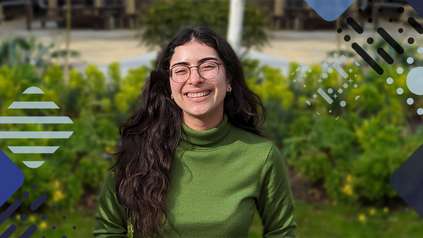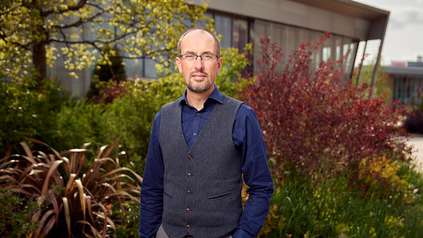Sanger Institute collaboration using quantum computing to tackle complex genomic challenges
A collaboration between the Wellcome Sanger Institute and the Universities of Oxford, Cambridge and Melbourne, with Kyiv Academic University as an additional partner, has progressed into the final stage of the Q4Bio Challenge, a competitive research programme funded by Wellcome Leap.
The team has been awarded $2 million to enter Phase 3 of the programme, which is designed to harness the power of quantum computing for the benefit of human health.
The Q4Bio Challenge aims to accelerate the development of quantum computing technologies by encouraging fast-paced computational innovation in order to solve important health challenges.1 Of the 12 teams that entered Phase 1, just six are now moving into Phase 3 after two competitive elimination rounds.2
The overall goal of the team’s project is to perform a range of genomic processing tasks for the most complex and variable genomes and sequences – a task that can go beyond the capabilities of current classical computers. The work includes assembling genomes and pangenomes from DNA sequences, as well as matching specific DNA sequences into reference genomes and pangenomes – which is key for studying genetic variation. Pangenomes are a representation of many different genome sequences that capture the genetic diversity in a population.3 By using quantum computers, the researchers aim to significantly reduce the time, and complexity of genomic information processing tasks.
As part of this final phase, the team also aims to encode and process an entire genome in a quantum computer – a potential world-first. The chosen genome is the bacteriophage PhiX174. The sequencing of this bacteriophage’s genome for the first time famously earned Fred Sanger his second Nobel Prize in Chemistry in 1980. Therefore, attempting to reliably encode its genome on a quantum computer is a significant benchmark for innovation in genomics and will mark a major milestone in both genomic science and quantum technology.
“This is an extraordinary opportunity to bring together the power of genomics and the potential of quantum computing. Processing the PhiX174 genome with quantum technology not only builds on the work that Fred Sanger completed but it tests what is possible for quantum computing in modern biology.”
Dr James McCafferty, Chief Information Officer at the Wellcome Sanger Institute
“This has been a fiercely competitive programme and the intensity of the challenge drives innovation at an incredible pace as we are hyper-focussed on completing the work in the 12 month deadline. Being part of Q4Bio is pushing us to solve complex genomic problems faster and with greater ambition than ever before.”
Dr Sergii Strelchuk, Associate Professor, Department of Computer Science at the University of Oxford, previously a Research Fellow at the University of Cambridge and principal investigator of the project
“The ultimate goal of Q4Bio is to demonstrate the potential of quantum computing in solving critical health challenges. This team has shown remarkable innovation in the challenge so far, and we’re excited to see how far they and our other projects in Q4Bio can push the technology in Phase 3.”
Dr Shihan Sajeed, Q4Bio Programme Director at Wellcome Leap
More information
Notes to editors
- To discover more about the Wellcome Leap Q4Bio programme aims and background, including the quantum computing context, visit https://wellcomeleap.org/q4bio/program/
- Teams entering Phase 3 have 12 months to implement and test their algorithms on quantum computers. A $5 million grand prize will be awarded to the team that successfully completes the challenge by meeting all challenge criteria. In addition, multiple $2 million prizes will be awarded to teams that meet the secondary criteria and demonstrate a clear path to scaling.
- To read more about human pangenomes, see here: https://humanpangenome.org/. The Human Pangenome Reference Consortium (HPRC) is an NIH-funded project that aims to engage scientists and bioethicists in creating a human pangenome reference and resource that represents global human genomic variation.
Funding
This project is funded by the Wellcome Leap Quantum for Bio (Q4Bio) Supported Challenge Program.





